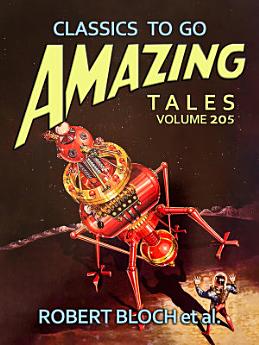Amazing Tales Volume 205
About this ebook
About the author
Robert Bloch (1917-1994) was an American writer whose work profoundly influenced the horror and thriller genres. Born in Chicago, Bloch's early fascination with the macabre was sparked by reading pulp magazines and the works of H.P. Lovecraft. This led to a correspondence with Lovecraft, who became a mentor and encouraged Bloch's writing career.
Bloch's most famous contribution to literature is undoubtedly "Psycho" (1959), a novel that redefined psychological horror and was famously adapted into the iconic Alfred Hitchcock film. This work cemented Bloch's reputation as a master of suspense and psychological complexity, influencing a generation of writers and filmmakers, including Stephen King and Quentin Tarantino.
Throughout his career, Bloch wrote over 30 novels and hundreds of short stories, spanning genres from horror to science fiction. His ability to blend dark humor with chilling narratives set him apart from his contemporaries. Bloch was also an accomplished screenwriter, contributing to television series like "Star Trek" and "Alfred Hitchcock Presents."
Controversy occasionally touched Bloch's career, particularly regarding his exploration of taboo subjects and the psychological depths of his characters. However, his willingness to delve into the darker aspects of human nature was revolutionary, challenging societal norms and expanding the boundaries of genre fiction.
Bloch's legacy endures through his innovative storytelling and his influence on contemporary horror and thriller narratives. His work continues to captivate and terrify readers, proving that his insights into the human psyche remain as relevant today as they were in his time.











